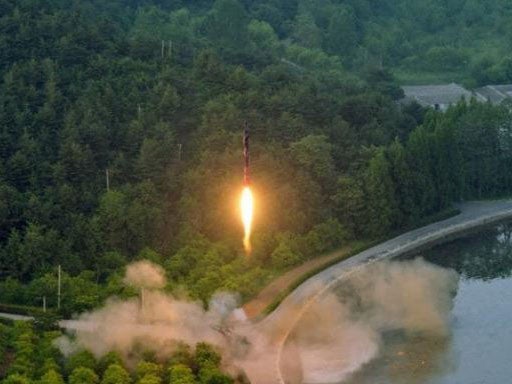Japan's military launches major exercise with US carriers to monitor North Korea
Operation comes just days after Kim Jong-un conducted short-range ballistic missile test

Japan's military has launched a three-day exercise alongside the US in the Sea of Japan to put pressure on North Korea to halt its accelerating ballistic missile programme.
Japan's Maritime Self Defence Force sent two ships, including one of its four helicopter carriers, the Hyuga, to join the two US carriers, the USS Ronald Reagan and USS Carl Vinson, and their eight escort ships, Japan's military said in a statement. .
Japanese Air Self Defence Force F-15s are taking part in simulated combat with US Navy F-18 fighters at the same time, the military said.
"It's the first time we have exercised with two carriers. It's a major exercise for us," a Japanese military spokesman said.
The Sea of Japan separates Japan from the Korean peninsula.
The US sent the warships to the region after a surge of tension on the Korean peninsula over fears the North was about to conduct a sixth nuclear test, or another test in its bid to develop an intercontinental ballistic missile capable of hitting the mainland US.
Japanese Prime Minister Shinzo Abe has vowed to work with other countries to deter North Korea, which on Monday conducted a short-range ballistic missile test.
The missile reached an altitude of 120 km (75 miles) before falling into the Sea of Japan in international waters, but inside Japan's exclusive economic zone where it has jurisdiction over the exploration and exploitation of maritime resources.
The launch followed two successful tests of medium-to-long-range missiles in as many weeks.
North Korea can already strike anywhere in Japan with missiles, raising concern in Tokyo that it could eventually be threatened by a North Korean nuclear strike.
South Korea's new liberal president, Moon Jae-in, who took office on 10 May, has taken a more conciliatory line than Mr Abe, pledging to engage in dialogue with his reclusive neighbour.
Reuters
Join our commenting forum
Join thought-provoking conversations, follow other Independent readers and see their replies
Comments
Bookmark popover
Removed from bookmarks